Two nights before I saw Jordan Peele’s Us, I dreamt about an earlier, teenage version of myself, the one who earned his father’s disapproval for wearing his hair like The Cure’s Robert Smith. The dramatic moment in the dream was a close-up of my Goth self staring blankly back at me, a mess of makeup staining parts of my pale face. (That he was aware of me at all felt like some temporal law of physics had been broken.)
In Jordan Peele's 'Us,' the Enemy Within is an Inarticulate Zombie
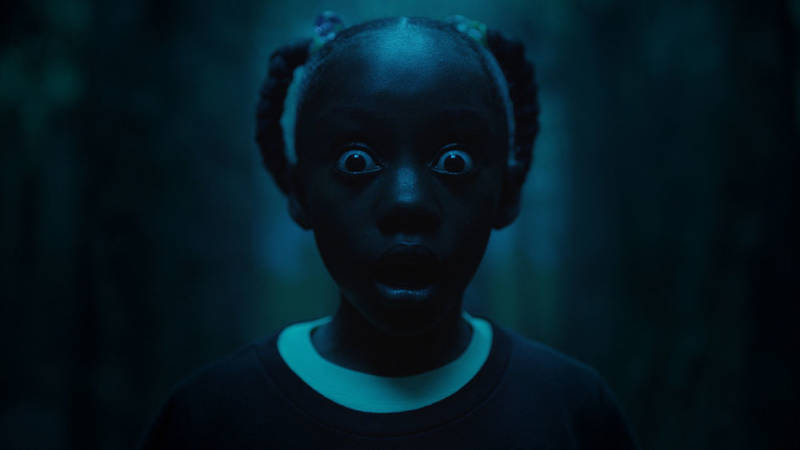
When I woke up, I remembered looking at that rudimentary Jeffrey, my personality unformed and pre-verbal, unable to articulate a word about what I was thinking or feeling, my inner life tightly locked up.
Headed by Adelaide (Lupita Nyong’o), the Wilson family of four at the center of Peele’s new movie also confronts versions of themselves summoned from the subterranean corridors of their unconscious minds. These shadow selves—doppelgängers—wear coveralls like the ones your woodshop teacher used to sport, except in a brilliant shade of scarlet. Each double wields a pair of glistening gold scissors they intend to use for something other than trimming stray threads.
Whereas Daniel Kaluuya’s character Chris Washington couldn’t escape from “the sunken place” of white repression in Peele’s remarkable first film Get Out, the Wilsons clad in red have escaped from their version of containment for good.
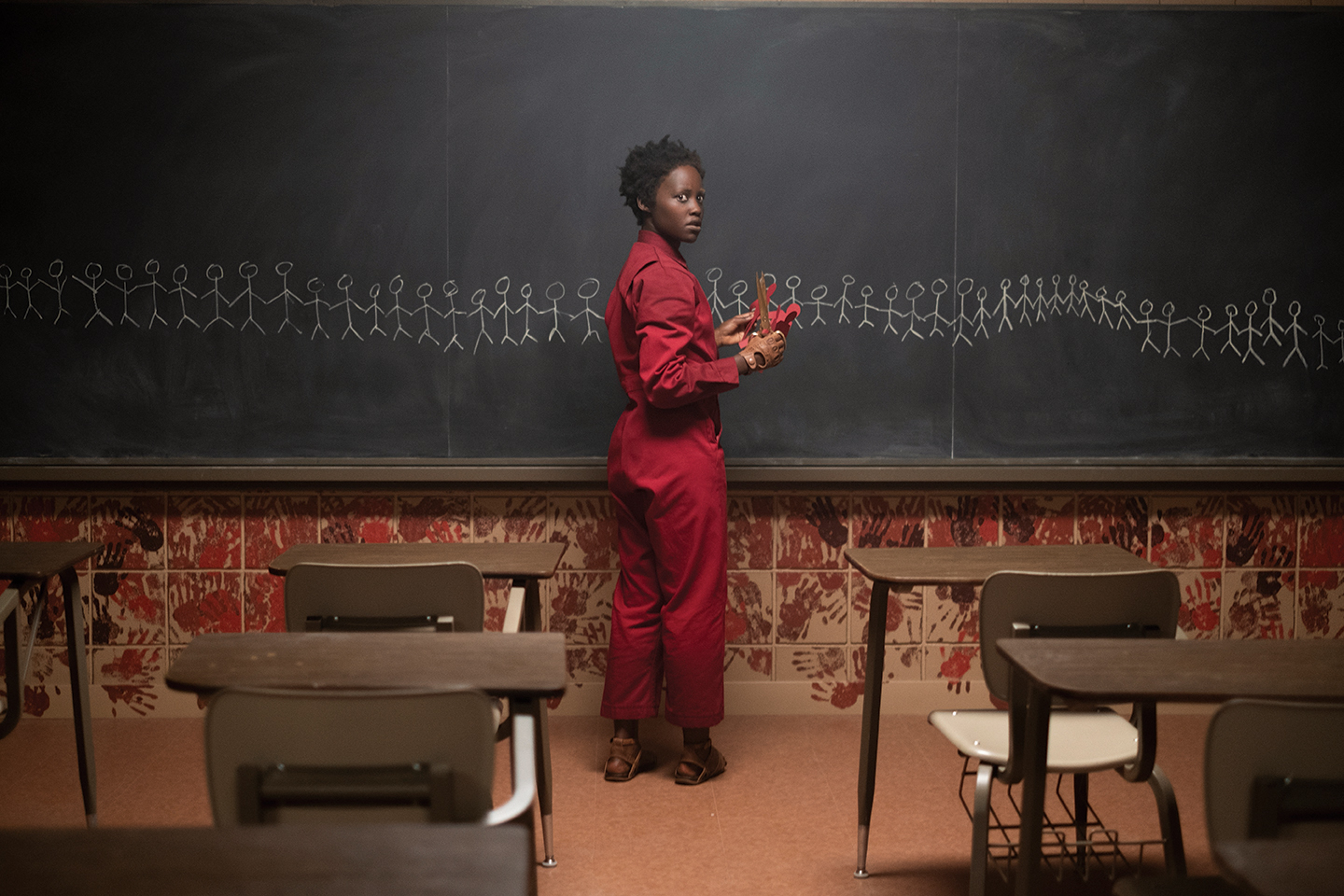
After an introductory segment set in 1986 (more on that later), the opening titles for Us play out as the camera pulls back from a caged white rabbit—only to slowly reveal an entire wall of caged rabbits in an abandoned elementary school classroom.
After that vision fades to black, Us begins again in the present, with the original Wilsons driving to Santa Cruz for a family vacation. They’re meeting friends of theirs, the Tylers, a white family, at the beach. But before they arrive, Adelaide tells her husband Gabe (Winston Duke) in a tremulous voice that she doesn’t want to go. It’s the first time we see a shift in Adelaide’s composure.
Her discomfort is directly related to the film’s prologue: In 1986, young Adelaide (Madison Curry) and her parents stroll around the Santa Cruz boardwalk. Her father wins a Michael Jackson Thriller T-shirt for her at an arcade game—and then she wanders off on her own.
Us is crowded with witty references to other movies that may or may not turn out to be red herrings. Peele initially establishes a similar scenario to that of Hitchcock’s The Birds (a lonely seagull gets his due).
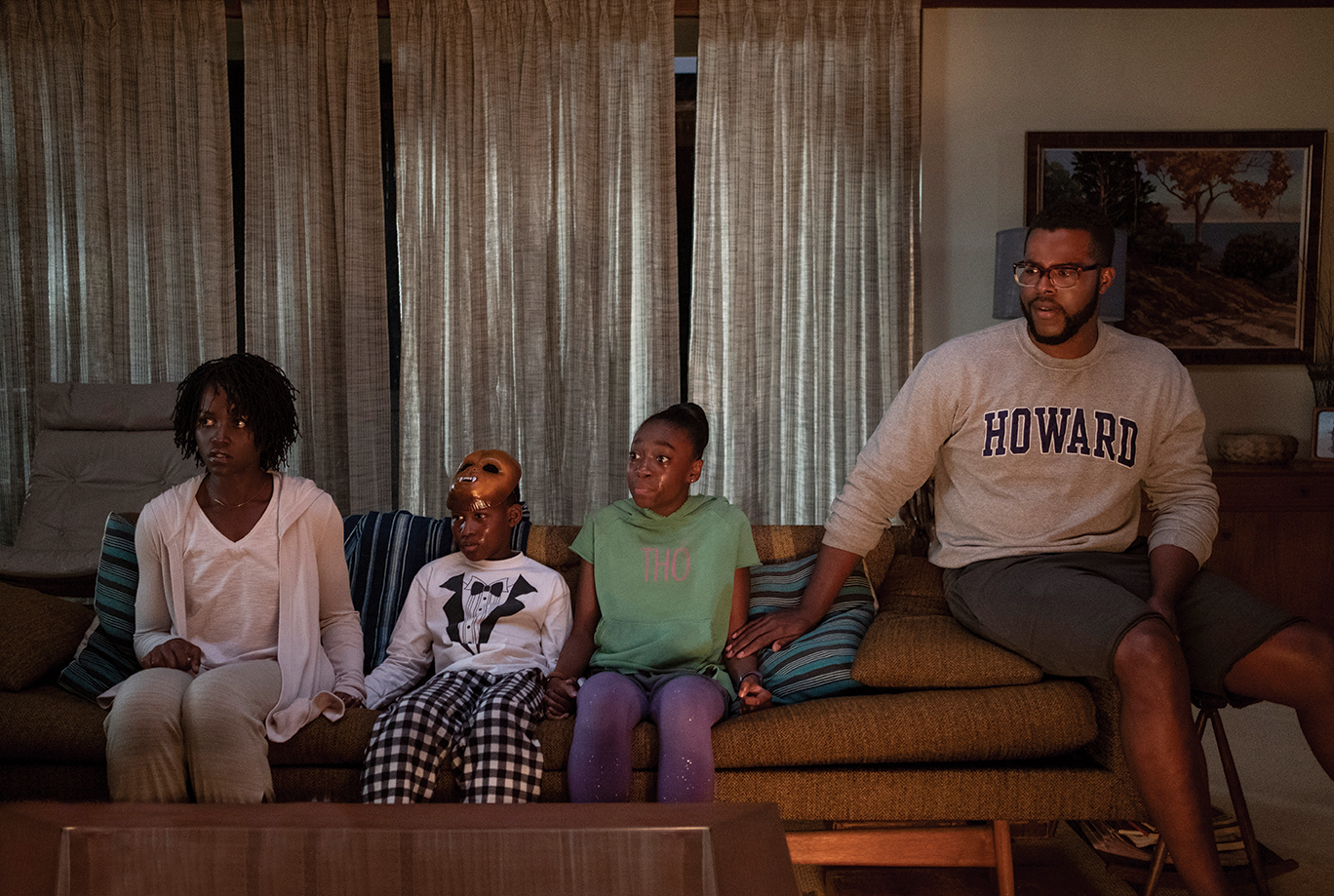
Like Tippi Hedren’s Melanie Daniels, the Wilsons are strangers arriving in a closed community. Their presence unbalances the atmosphere. As they drive into town, the first thing they see is a dying homeless man being carried away in an ambulance. The cardboard sign that lays across his chest reads, “Jeremiah 11:11,” a biblical reference to this disturbing line: “Therefore, thus says the Lord, Behold, I am bringing disaster upon them that they cannot escape. Though they cry to me, I will not listen to them.”
Unlike Get Out, in which Peele maintained a straight face and an even tone throughout, Us twists and turns through a variety of genres. After bravely imitating Hitchcock’s mastery of suspense, he revisits Halloween’s gore and viscera; Gabe and Adelaide’s son Jason (Evan Alex) frequently wears a demon’s mask over his face.
Although Us has been billed as a horror movie, the director usually (but not always) turns the camera away from the violence at the last possible moment. Peele’s just as invested in fun-house scares to make the audience jump, as he is in creating pools of spilled blood. If I had to pick one genre to describe it, I’d land on “thriller,” thanks to the earlier Michael Jackson reference (which, after watching the documentary Leaving Neverland, extends the general atmosphere of unease created by seeing children in danger).
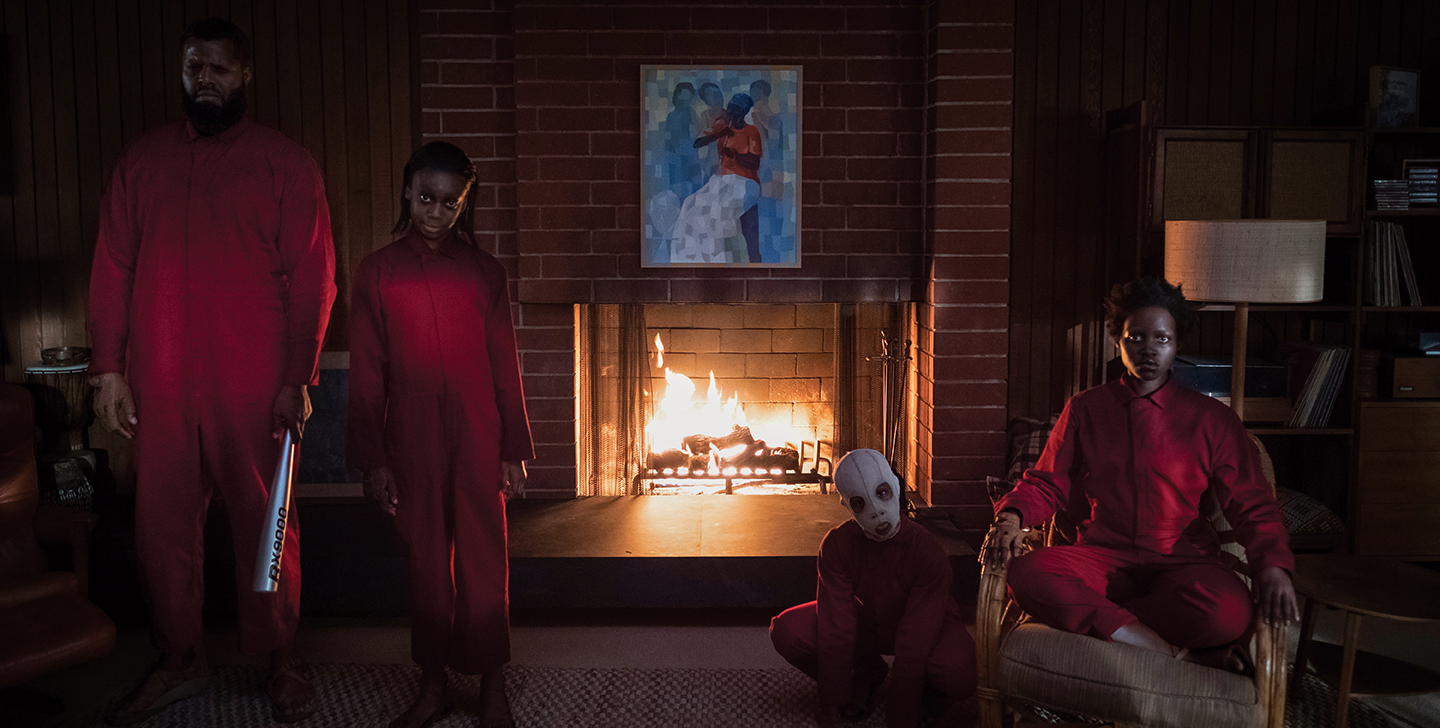
As the film progresses, we learn more about Adelaide, and that something changed in her that night on the boardwalk. You can feel that long-ago pain in Nyong’o’s performance; whatever trauma Adelaide suffered as a child, she has yet to recover from it as an adult.
Peele occasionally abandons this rich psychological material for her husband’s fourth-wall-breaking comic asides. He took a similar approach with the lines he wrote for Lil Rel Howery as Rod, the TSA agent/hero of Get Out, who acknowledges the scary movie tropes he and the other characters find themselves in. But Rod and Chris’ friendship felt real. Gabe and Adelaide’s marriage isn’t quite lived in to the same degree. We don’t see them in their daily routine before they hit the road on their holiday of doom. And as a result, they seem mismatched from the minute they land in Santa Cruz.
Gabe is unaware of his wife’s profound sense of distress and, more importantly, of its origins. Because he’s oblivious to her internal life, it’s hard to believe they’ve gotten this far together as a married couple, or that they’ll work as an effective team against doppelgänger-induced adversity.
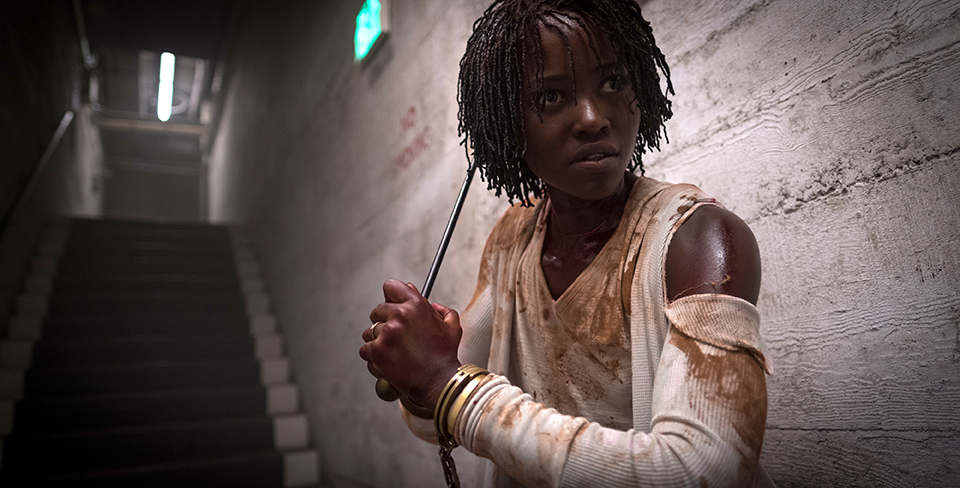
Part of me hoped Us would move beyond the snipping scissors routine to take a more nuanced approach to the question of an identity in peril, like the way Jake Gyllenhaal’s character slowly unravels when he meets his double in Denis Villeneuve’s Enemy. But Peele knows how to please an audience (Get Out made $255 million at the box office in 2017 and he went on to win an Academy Award for Best Original Screenplay).
After the screening, the first two comments I heard in the lobby from enthusiastic members of the crowd were, “Creepy as f-ck” and “Trippy sh-t.”
Someone also said, “They didn’t know how to end it,” and that might have been true too.

‘Us’ opens Friday, March 22, in San Francisco at the AMC Kabuki 8, AMC Metreon 16, Century San Francisco Centre 9, Alamo Drafthouse Cinema and the Balboa Theatre.

